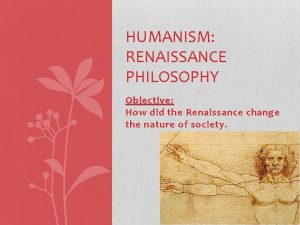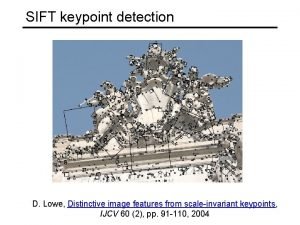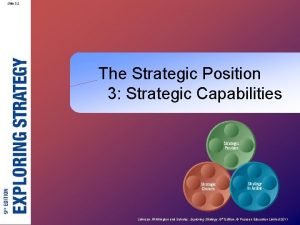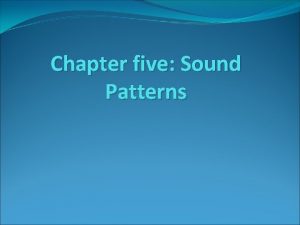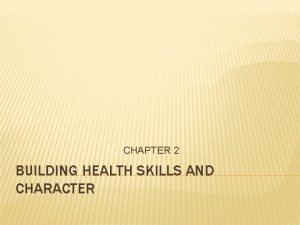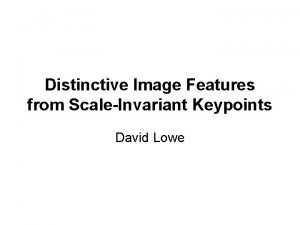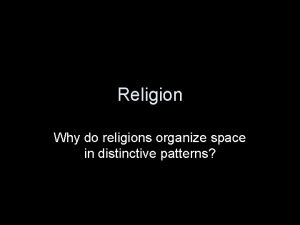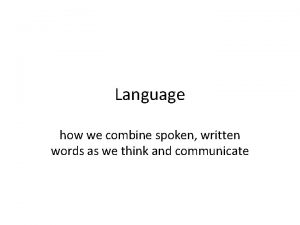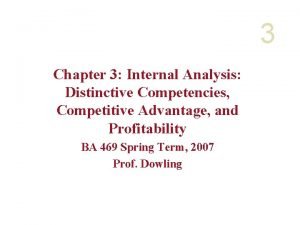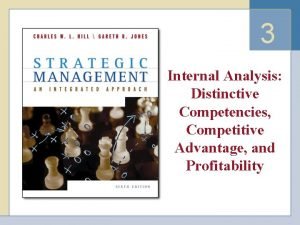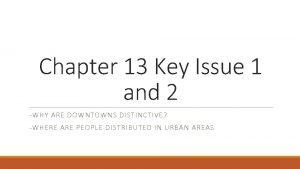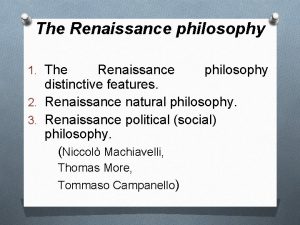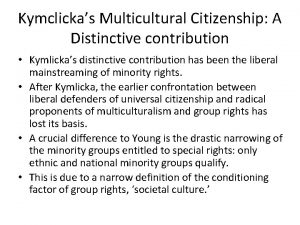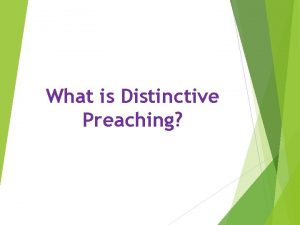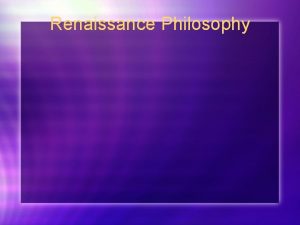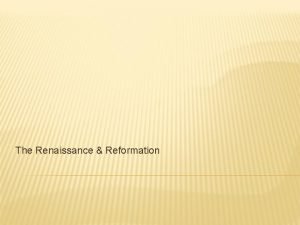The Renaissance philosophy 1 The Renaissance philosophy distinctive










- Slides: 10

The Renaissance philosophy 1. The Renaissance philosophy distinctive features. 2. Renaissance natural philosophy. 3. Renaissance political (social) philosophy. (Niccolò Machiavelli, Thomas More, Tommaso Campanello)

. Distinctive features

Anthropocentrism & humanism. New understanding of HUMAN Features of Anthropocentrism : 1. Human is no longer a "passive image and likeness of God, " but a valuable, creature equal to God, having free will for creative self-realization; 2. The purpose of human life - titanism creative universality; 3. Rehabilitation of the natural beginning - the bodily and sensual are natural and inseparable.

Lecture 4. 2. Renaissance natural philosophy. Basis - pantheism the principle of identification of the nature of microcosmos and macrocosmos. - - the hylozoism - is the philosophical point of view that all matter (including the universe as a whole) is in some sense alive by itself or by participation in the World Soul.

Representatives Natural philosophy O Copernicus, O G. Bruno, O Nicholas of Cusa's O Galileo Galilei

Copernicus argued on theoretical grounds for a heliocentric (opposed to Antique geocentrism) view of the universe. Hearing the ideas of Copernicus about the nature of the universe made Giordano Bruno think the following way: if the Earth was not the center of the universe, and all those stars clearly seen in the night sky were also suns, then there must exist an infinite number of earths in the universe, inhabited with other beings like ourselves. He also recognized matter and spirit (or corporeal and incorporeal substance) as separate substances. Everything was infused with soul. The spirit of God animated and informed each thing, and harmonized everything into a single universal whole.

The epistemologic moments of this epoch were expressed in Nicholas of Cusa's theory of the “learned ignorance” (ученое незнание). Mental abilities of man according to it are limited – man cognize (beforehand in the empiric way) the material world regularities (закономерности) but no God. Before the face of God he's always only an applicant because God as himself all time remains outside of his comprehension.

Lecture 4. 2 However, on the whole, the Renaissance natural philosophers’ understanding of nature was to a large extent fantastical and included astrological and alchemical concepts. Intense efforts to master the forces of nature led to an interest in magic, cabalism, and Pythagorean number-mysticism.

Lecture 4. 2 3. Renaissance political philosophy. (Niccolò Machiavelli, Thomas More ) Political philosophy is the study of such topics as politics, liberty, justice, property, rights, law, it can also be understood by analysing it through the perspectives of metaphysics, epistemology and axiology. During the Renaissance secular political philosophy began to emerge after about a century of theological political thought in Europe. Niccolò Machiavelli Thomas More

Niccolò Machiavelli “The Prince” O Politics have no relation to morals. O It is better to be feared than loved, if you cannot be both. O The lion cannot protect himself from traps, and the fox cannot defend himself from wolves. One must therefore be a fox to recognize traps, and a lion to frighten wolves. O People should either be caressed or crushed. If you do them minor damage they will get their revenge; but if you cripple them there is nothing they can do. If you need to injure someone, do it in such a way that you do not have to fear their vengeance.
 Humanists also stressed the importance of the
Humanists also stressed the importance of the Sift lowe
Sift lowe The strategic position
The strategic position Free variation and complementary distribution
Free variation and complementary distribution Distinctive qualities that describe how a person thinks
Distinctive qualities that describe how a person thinks Distinctive image features from scale-invariant keypoints
Distinctive image features from scale-invariant keypoints Why do religions organize space in distinctive patterns
Why do religions organize space in distinctive patterns In a language the smallest distinctive sound unit
In a language the smallest distinctive sound unit Distinctive competencies
Distinctive competencies Distinctive competencies
Distinctive competencies Chapter 13 key issue 1
Chapter 13 key issue 1
